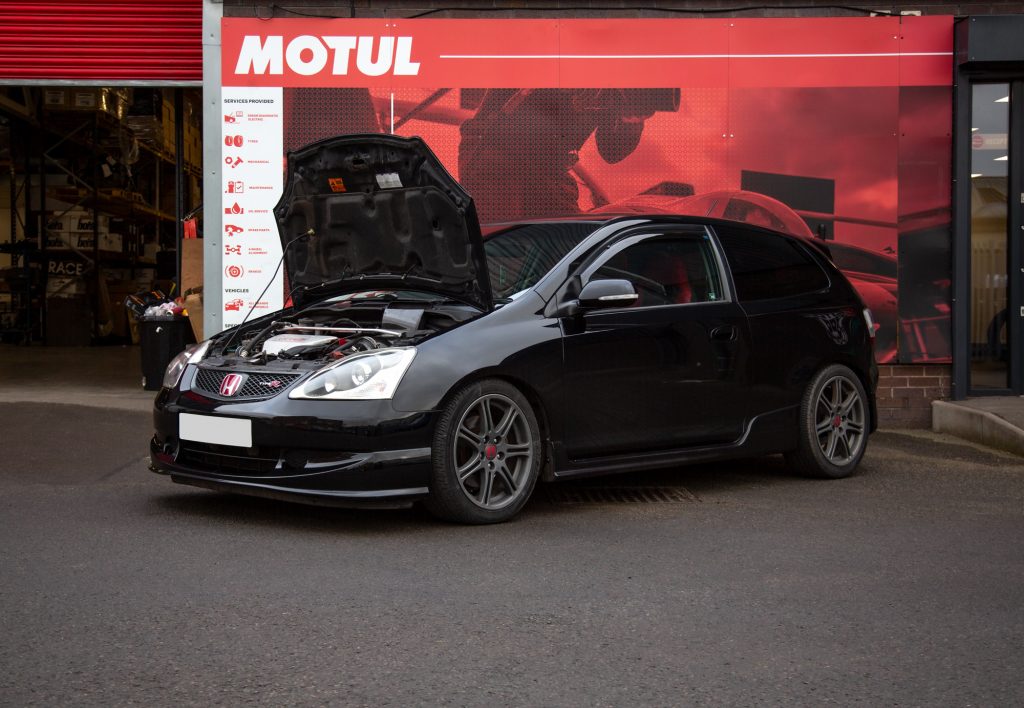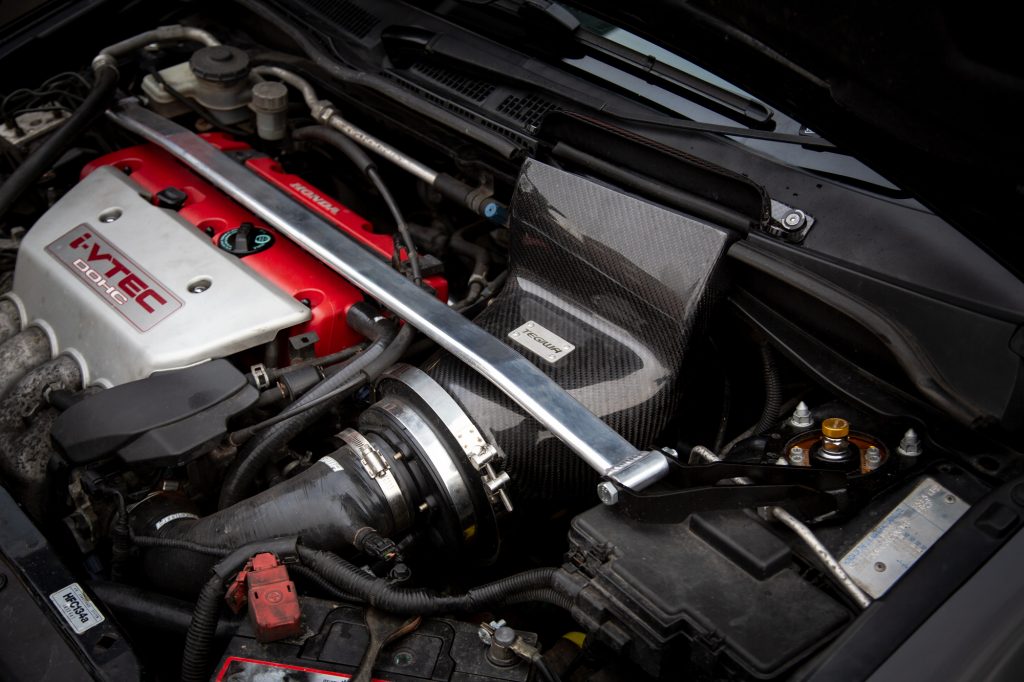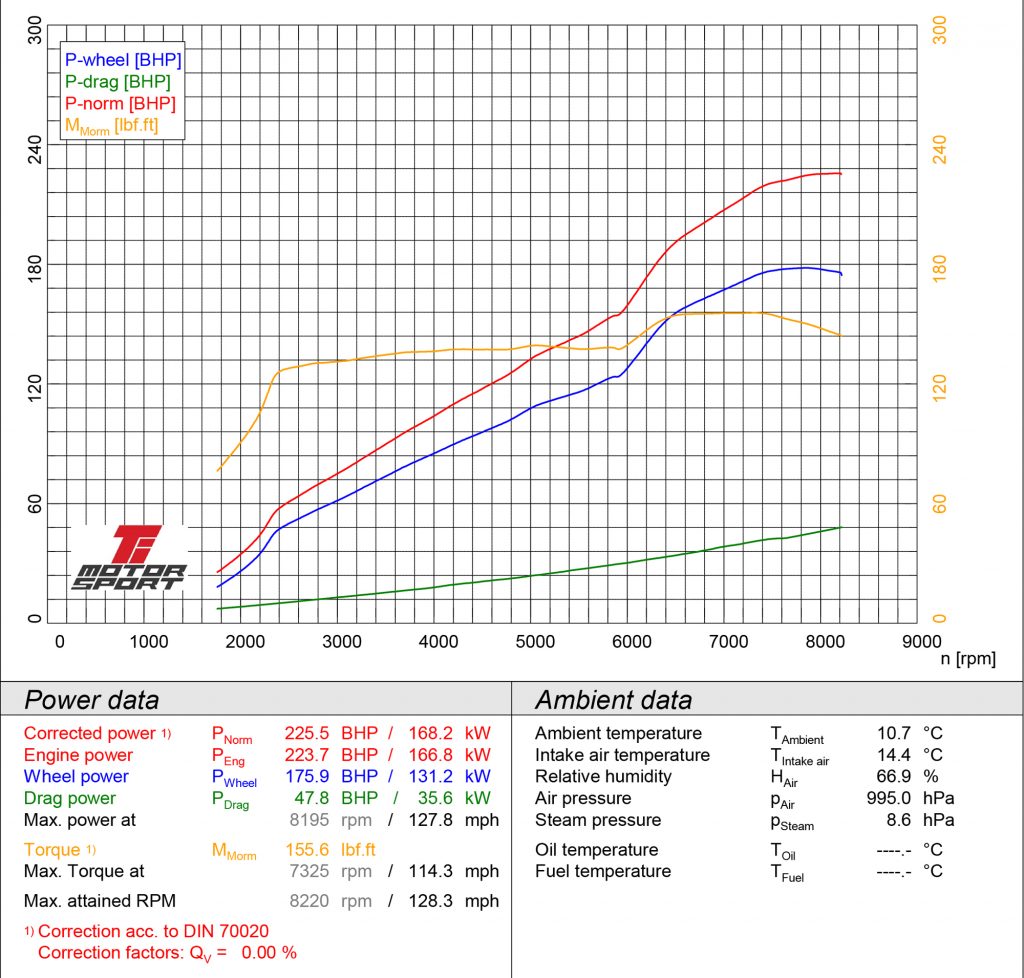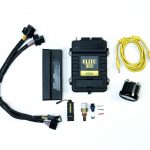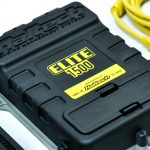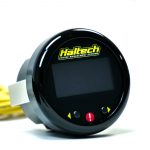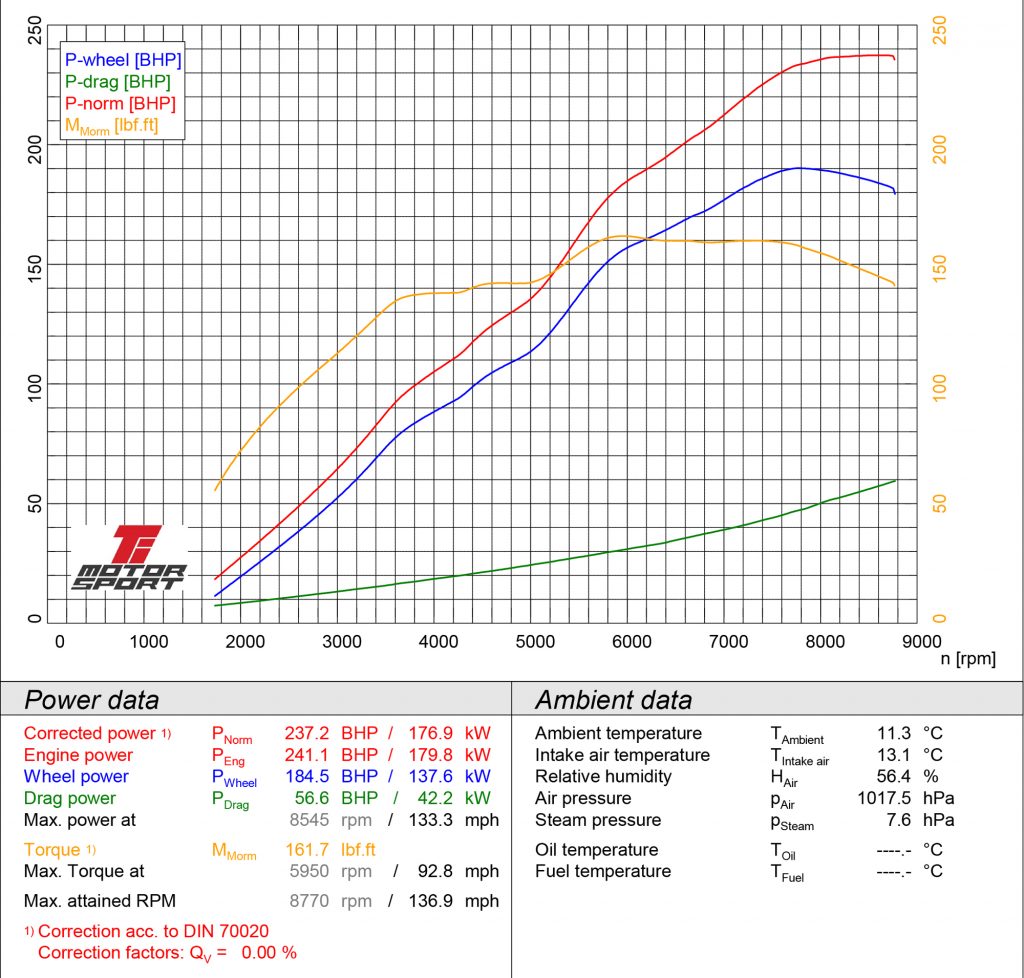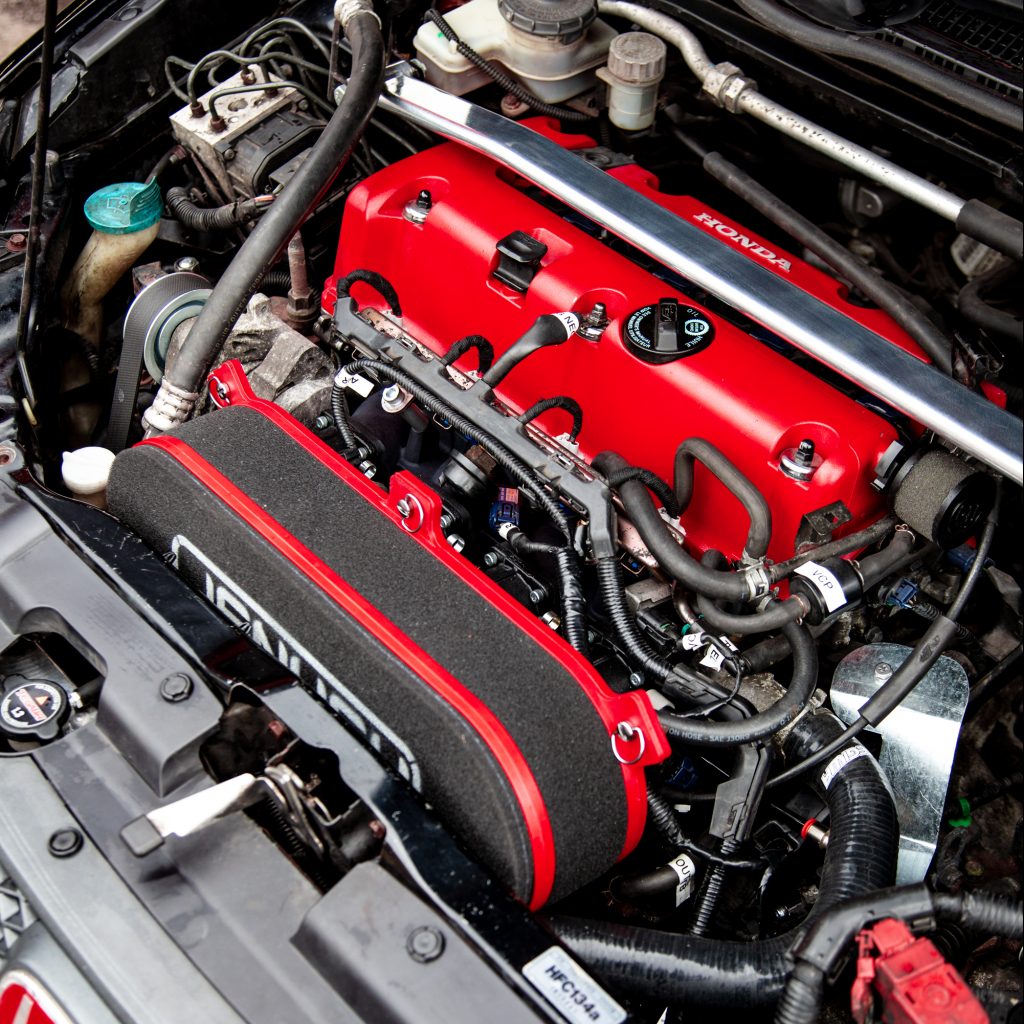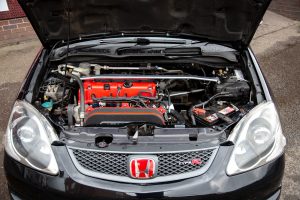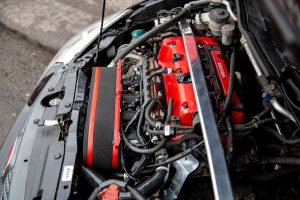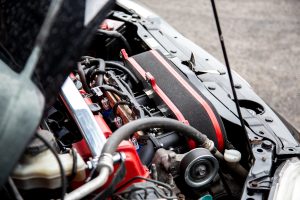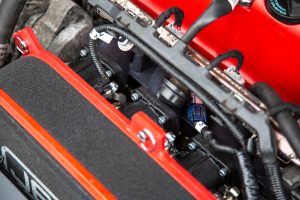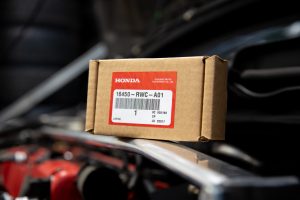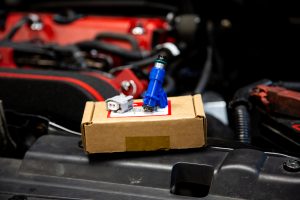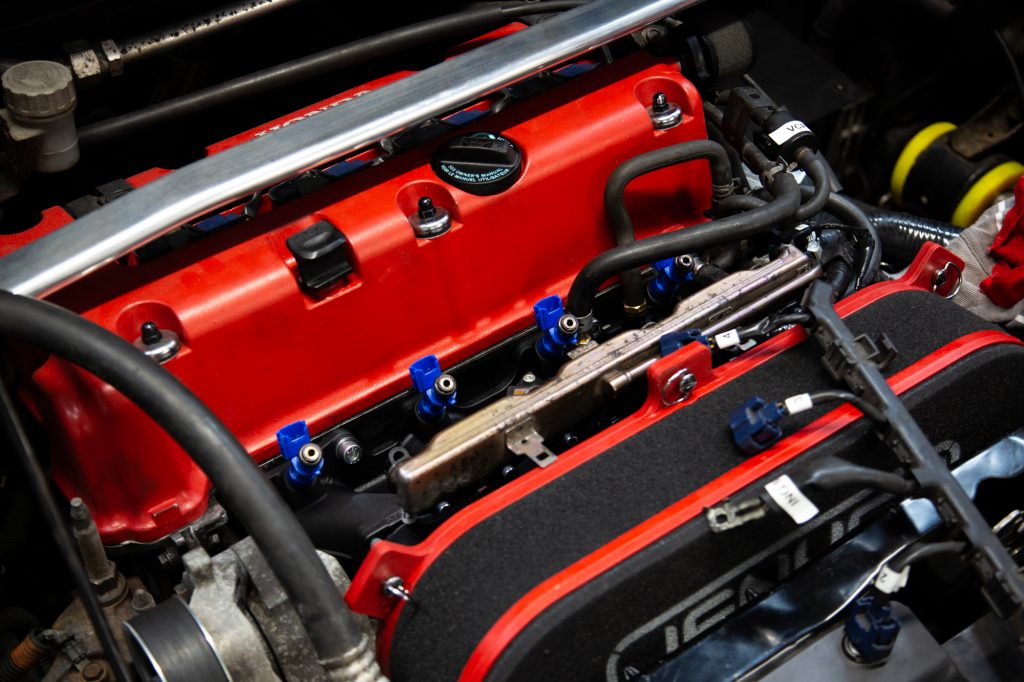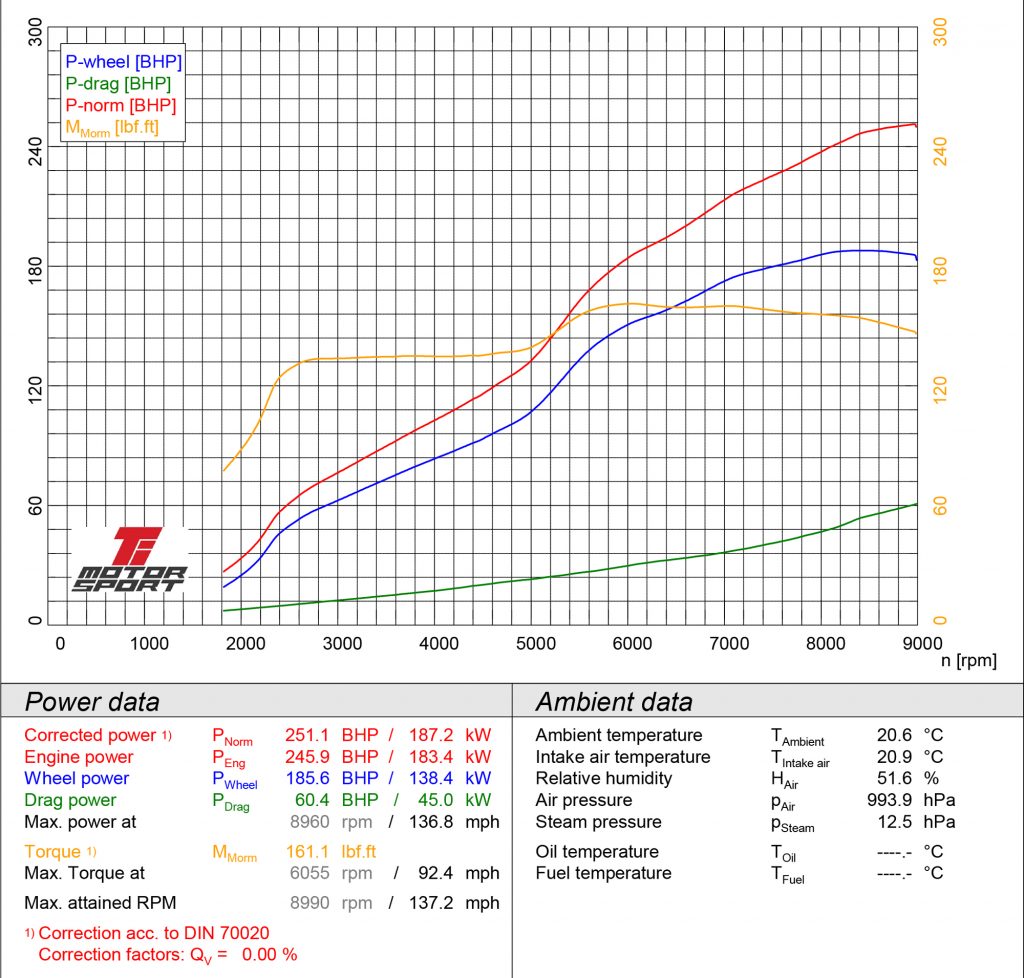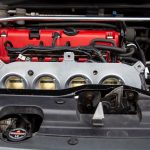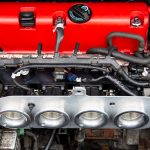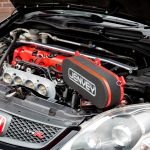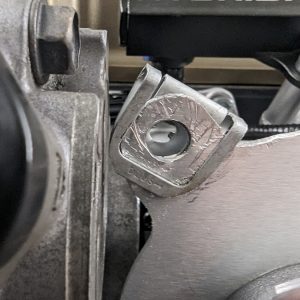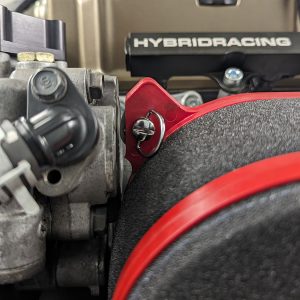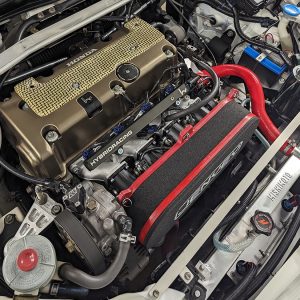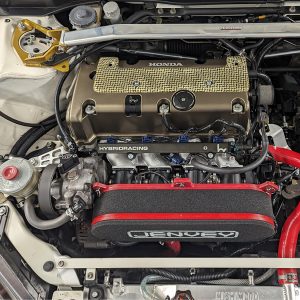Civic EP3 gets a set of Jenvey ITB’s!
Individual Throttle Bodies or ITB’s are one of the ultimate tuning options for those looking to keep the naturally aspirated setup of the K20 found in the Honda Civic EP3. In our latest guide, we’re going to look at the benefits of the latest creation from Jenvey Dynamics.
The car
Let’s start by taking a look at the EP3 that we’ll be using for the test. As far as modifications go, it’s largely stock, with just a few simple bolt-on modifications to help the car breathe a bit better. We’ve got the following items:
We put the car through 3 power runs to ascertain a benchmark power figure. The car produced 227hp, 226hp and 225hp on each run. This is a very healthy figure for an EP3, especially one that has done over 150k miles.
Pre ITB Tuning
A benefit of this ITB kit from Jenvey is that it doesn’t require any supporting modifications other than a standalone ECU. The ECU of choice for this was the Haltech Elite 1500 with Plug and Play Adaptor Harness. The Haltech Elite 1500 benefits from cutting edge technology unlike other ECU’s on the market with features including traction control, launch control, anti-lag, staged fuel injection and an abundance of advanced engine protection parameters. A Bosch Haltech 4.9 Wideband was also installed to monitor air/fuel ratios when tuning.
We’ve also used a Haltech Multi-function CAN gauge as when using this ECU, you lose the temperature gauge. However, with this gauge you can display a multitude of different parameters such as:
- Air/Fuel Ratio
- Coolant Temperature
- Battery Voltage
- Oil Pressure
- Throttle Position
- & much more…
With the ECU installed, we then strapped the car to our dyno for a session of tuning with renowned Honda tuner, Paul West from TPW Engineering. After a morning of power runs, the final figure that the car produced was a mighty 237.2 horsepower. Pretty impressive for a car with a standard intake manifold!
Jenvey Developments
The car then headed off to Jenvey Dynamics for a few weeks as they got busy developing the kit. If you’re familiar with ITB’s then you’ll have no doubt already heard of Jenvey. They design, develop and manufacture ITB’s for a vast array of performance vehicles. Their focus is on performance, reliability, lightness and value which is all backed up by their motorsport success.
Jenvey’s goal was to produce a set of ITB’s for a standard Civic EP3 that didn’t require any major modifications. The guys went through a few different iterations to get the final design nailed as the clearance in the engine bay is quite tight. After a few weeks of trial and error they managed to get it spot on!
As you can see, the kit bolts straight on. There are no modifications required to any of the pipes, pulleys, sensors or the fuel rail in order to fit them. The manifold itself is curved in order to clear the auxiliary pulley. The kit is finished off with an ITG foam filter that fits snuggly in the engine bay, maximising all possible space.
Post ITB Tuning
With the car safely back at Tegiwa HQ there was a few things that needed to happen before the car could be driven. The first of which was to install a set of bigger injectors. Strictly, you don’t have to upgrade your injectors but it is something that our tuner, Paul West, highly recommends otherwise the standard injectors will be running too close to there full duty cycle.
Our injectors of choice were Genuine Honda RDX 410cc injectors with Toyota clips. These are 100cc bigger than the standard injectors so are ideal for this setup. You’ll also need to re-pin the new injector plugs with the original pins.
With the car left in the capable hands of Paul on the Ti Motorsport dyno for the day, we were super excited to see what gains the ITB’s had given. Once the tuning was complete, we carried out a power run to see how much power the kit had given us.
A run of 251.1bhp with 161.1 lbf.ft meant the kit had improved performance with an additional 13.8bhp! Of course, dyno figures aren’t the be all and end all of everything, it’s largely about the experience on the road. As we all know, there’s not much that comes close to the noise of a set of ITB’s screaming all the way to 9,000rpm which is a huge factor when it comes to deciding what option to go down when tuning your K20.
Our observations that we did notice when the car was on the dyno is that the more air we could feed the ITB’s with, the better it performed. For example, the car made even more power without the foam filter installed! For those wanting to chase numbers out of these kits, then feeding the ITB’s with a custom air feed through the grill or a vented bonnet might result in even more gains.
This kit is also a great option for anybody to look at switching their current N/A setup too. If you already have an aftermarket intake manifold and airbox then these can be taken off, sold, and replaced with the ITB’s. You’ll just need a standalone ECU, if you haven’t got one already, and a map from a reputable tuner. We also strongly recommend upgrading the injectors too if you haven’t already!
Fitting to an Integra DC5
We can now confirm, with thanks to Tegiwa sponsor Jamie Price, that this kit also fits to the Integra Type R DC5 with a couple of small minor adjustments to the kit. The first of which is that the trumpet nearest the power steering pump needs trimming down. This then enables you to squeeze the air filter between the trumpet and the pump.
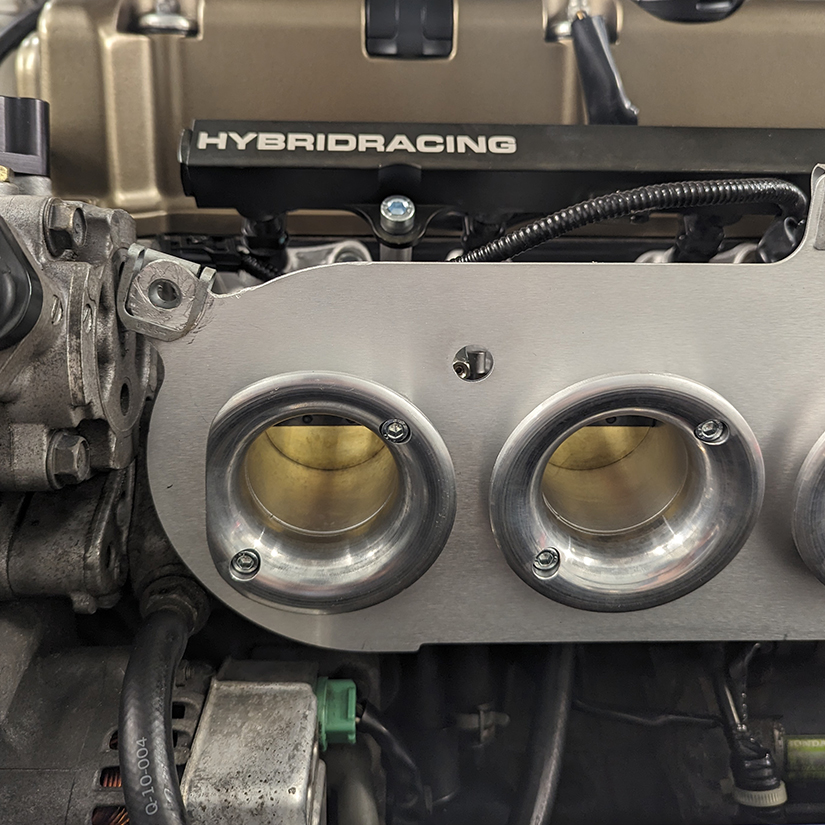
The second adjustment is that the air filter backing plate, the locking tab clip and red plastic trim need trimming slightly to ensure that it doesn’t foul the power steering pump.
Jamie also mentioned that he de-pinned the two outer throttle position sensor wires and swapped them around. This enabled the car to run on his Hondata K-Pro ECU. Of course, we’d also recommend a remap from a reputable tuner once the kit is fitted to ensure that the ITB’s can operate at the full potential.
Like what you see? You can grab a set of these plug & play ITB’s now on our website!
As always, if you prefer to watch then you can check out our detailed video that follows the process on our YouTube channel.
Thanks
We’d like to give a big thanks to the following companies and people for making this test happen:
- Jenvey Dynamics for developing this kit
- Paul West from TPW Engineering for tuning the car
- Kyer Beddoes for lending us his car
- Haltech
- You – for reading our blogs and watching our videos!
